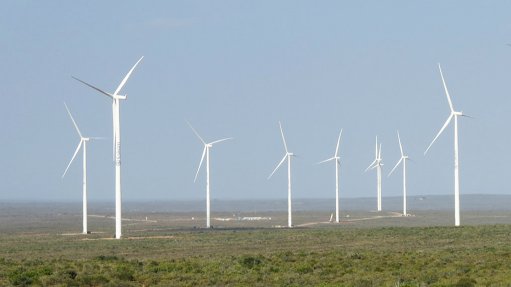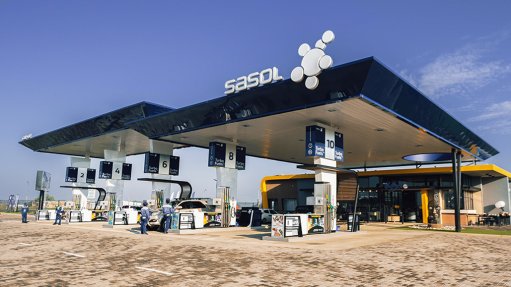Localisation a key ‘policy tool’ for South Africa – Davies

Trade and Industry Minister Dr Rob Davies discusses the importance of localisation in South Africa's industrialisation efforts. Video and editing: Nicholas Boyd.
Localisation is an important policy tool for industrial development in South Africa and will assist in growing the economy and the manufacturing sector, Trade and Industry Minister Dr Rob Davies said on Tuesday.
Speaking at the 2017 Proudly South African Buy Local Summit, in Johannesburg, he highlighted that the policy stipulates that it is government’s preference that State entities buy locally manufactured goods.
“It is a widely deployed policy tool. If government decides to source products that are locally made, it will support the enterprises that are producing those products in our own economy, while creating and supporting jobs,” Davies said.
He noted that the amendments to the Preferential Procurement Policy Framework Act have allowed government to designate certain products that have to be bought from locally manufactured sources, according to meticulous specifications.
“The designations indicate the percentage of different kinds of products that have to be locally made. All organs of State must purchase products indicated according to the specifications of designations,” Davies said.
He noted that 21 products have been designated for local procurement, with stipulated minimum thresholds of local content.
“And there are more in the pipeline. A new [iteration of the] Industrial Policy Action Plan (Ipap) has been approved by Cabinet and will indicate that work is continuing on another range of products that will be subject to designations.”
He added that, if this policy tool was applied properly, individual enterprises and value chains would benefit significantly.
Davies highlighted that localisation will help to create a more inclusive economy and create more opportunities for entry into the manufacturing space.
He noted that, if government were to offer international companies a tax incentive to set up manufacturing plants, allowing them to take advantage of preferential procurement by advancing localisation, “we will expect them to have a certain level of broad-based black economic empowerment recognition.
“Some of this, under the new [Broad-based Black Economic Empowerment] scorecard, will have to be earned in some form of enterprise and supplier development,” he said, adding that international companies needed to include black suppliers in their value chain.
He stated that the Department of Trade and Industry’s (DTI’s) Black Industrialists Programme would go a long way in accelerating radical economic transformation and changing the ownership patterns of the country’s economy.
The objective of the scheme is to promote the participation of black industrialists as manufacturers in key sectors of the economy as identified in the Ipap.
The Black Industrialists Programme will ensure that black entrepreneurs are meaningfully involved in the manufacturing sectors.
Davies pointed out that the DTI had, to date, supported 30 black industrialists with over R500-million in incentives.
“Instead of targeting 100 black industrialists within two years [as had been originally intended], we will reach that target in the next financial year ending March 2018,” Davies said.
Meanwhile, Davies said that the public infrastructure build programme, which is operating under the slogan ‘Turn South Africa into a Construction Site’, has 17 strategic programmes that are both geographic and sector specific.
“The programme has led to a significant increase in investment in building and construction. The industry has grown sevenfold since 2 000, with investment increasing from R55-billion to R380-billion,” he said.
He noted that public expenditure accounts for 55% of total building construction and that closer monitoring of local content in the infrastructure programme is part of the work being undertaken by the Presidential Infrastructure Coordinating Commission.
Comments
Press Office
Announcements
What's On
Subscribe to improve your user experience...
Option 1 (equivalent of R125 a month):
Receive a weekly copy of Creamer Media's Engineering News & Mining Weekly magazine
(print copy for those in South Africa and e-magazine for those outside of South Africa)
Receive daily email newsletters
Access to full search results
Access archive of magazine back copies
Access to Projects in Progress
Access to ONE Research Report of your choice in PDF format
Option 2 (equivalent of R375 a month):
All benefits from Option 1
PLUS
Access to Creamer Media's Research Channel Africa for ALL Research Reports, in PDF format, on various industrial and mining sectors
including Electricity; Water; Energy Transition; Hydrogen; Roads, Rail and Ports; Coal; Gold; Platinum; Battery Metals; etc.
Already a subscriber?
Forgotten your password?
Receive weekly copy of Creamer Media's Engineering News & Mining Weekly magazine (print copy for those in South Africa and e-magazine for those outside of South Africa)
➕
Recieve daily email newsletters
➕
Access to full search results
➕
Access archive of magazine back copies
➕
Access to Projects in Progress
➕
Access to ONE Research Report of your choice in PDF format
RESEARCH CHANNEL AFRICA
R4500 (equivalent of R375 a month)
SUBSCRIBEAll benefits from Option 1
➕
Access to Creamer Media's Research Channel Africa for ALL Research Reports on various industrial and mining sectors, in PDF format, including on:
Electricity
➕
Water
➕
Energy Transition
➕
Hydrogen
➕
Roads, Rail and Ports
➕
Coal
➕
Gold
➕
Platinum
➕
Battery Metals
➕
etc.
Receive all benefits from Option 1 or Option 2 delivered to numerous people at your company
➕
Multiple User names and Passwords for simultaneous log-ins
➕
Intranet integration access to all in your organisation



















